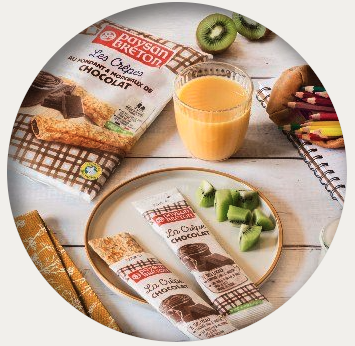
Leading French Dairy Cooperative Moves Towards a Circular Economy
Laïta, one of the leading dairy cooperatives in Western France, has been focusing on reducing single-use plastic packaging in response to evolving customer expectations and regulatory pressures. Mathieu Boulc’h, Packaging Development & Procurement Manager at Laïta, highlights that customers increasingly demand more sustainable packaging options, and laws such as France’s AGEC regulation and the EU's PPWR are driving the shift toward recyclability.
Boulc’h explains that finding a mono-material packaging solution that meets all the technical, mechanical, and regulatory requirements for secondary packaging has been a significant challenge. The dairy cooperative sought to develop a fully recyclable paper-based solution to replace its existing paper-plastic complex.
The Challenge: Balancing Affordability, Functionality, and Sustainability
In their quest for recyclable packaging, Laïta had to meet multiple criteria. The material needed to be cost-effective, compatible with factory production lines, and suitable for marketing. Most importantly, the new packaging had to comply with both current and future regulations.
For the packaging of their popular French pancakes, or ‘crêpes,’ which are sold in bundles of six, the secondary packaging material had to be sturdy enough to hold the weight of the product while maintaining its sealability. The right paper quality was key, with the ideal balance between thickness and print finish required to avoid production disruptions.
Finding the Right Paper and Ink
According to Marie Barge, Business Development Manager at Walki, the transition from a paper-plastic complex to a recyclable paper material presented a unique set of challenges. "The material must offer excellent runnability and ensure production efficiency, while also supporting marketing needs,” Barge explained.
Another important requirement from Laïta was the use of water-based inks and varnishes, which help optimize the fiber yield in the recycling process.
Two-Year Collaboration for a Smooth Transition
After more than two years of development, Walki was able to deliver a solution that met Laïta’s stringent requirements. Throughout the process, a strong partnership was maintained, with both parties working collaboratively to resolve challenges.
“The project went very well, and Walki met all our needs and expectations. We had an open dialogue, which allowed us to overcome every challenge that came up during the development process,” said Boulc’h.
Laïta’s successful switch to fully recyclable secondary packaging is a testament to the power of long-term collaboration and commitment to sustainability.






